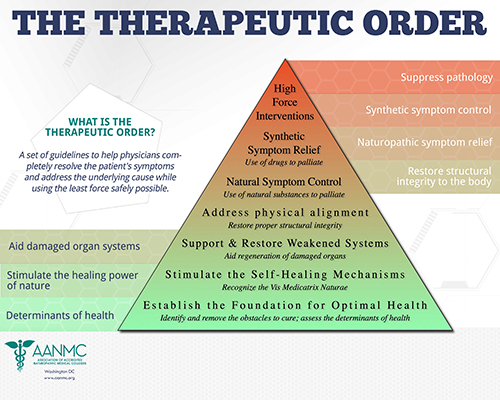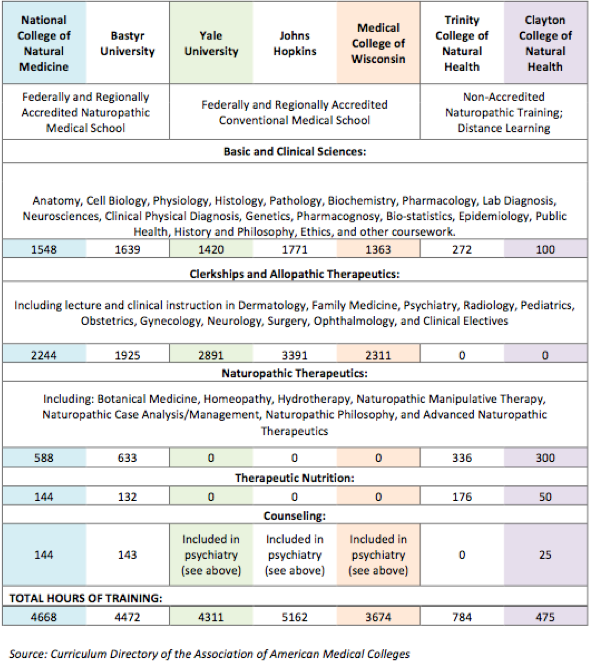What is Naturopathic Medicine?
About Naturopathic Medicine
Naturopathic medicine is a distinct primary health care profession, emphasizing prevention, treatment, and optimal health through the use of therapeutic methods and substances that encourage individuals’ inherent self-healing process. The practice of naturopathic medicine includes modern and traditional, scientific, and empirical methods.
Naturopathic doctors, or NDs, are experts in natural medicine and offer a holistic approach to healthcare. Naturopathic physicians can treat both acute and chronic diseases, and are true experts in preventative medicine. NDs not only utilize natural medicine, but also conventional tools such as labs, pharmaceuticals, etc.
Currently there are 22 states, District of Columbia, and the US territories of Puerto Rico and Virgin Islands that license or regulate naturopathic physicians. In Oregon, NDs have one of the widest scopes and can serve as Primary Care Physicians. Many are paneled with insurance companies as well.
Tenants of Naturopathic Medicine
- The Healing Power of Nature (Vis Medicatrix Naturae): Naturopathic medicine recognizes an inherent self-healing process in people that is ordered and intelligent. Naturopathic physicians act to identify and remove obstacles to healing and recovery, and to facilitate and augment this inherent self-healing process.
- Identify and Treat the Causes (Tolle Causam): The naturopathic physician seeks to identify and remove the underlying causes of illness rather than to merely eliminate or suppress symptoms.
- First Do No Harm (Primum Non Nocere): Naturopathic physicians follow three guidelines to avoid harming the patient:
- Utilize methods and medicinal substances which minimize the risk of harmful side effects, using the least force necessary to diagnose and treat;
- Avoid when possible the harmful suppression of symptoms; and
- Acknowledge, respect, and work with individuals’ self-healing process.
- Doctor as Teacher (Docere): Naturopathic physicians educate their patients and encourage self-responsibility for health. They also recognize and employ the therapeutic potential of the doctor-patient relationship.
- Treat the Whole Person: Naturopathic physicians treat each patient by taking into account individual physical, mental, emotional, genetic, environmental, social, and other factors. Since total health also includes spiritual health, naturopathic physicians encourage individuals to pursue their personal spiritual development.
- Prevention: Naturopathic physicians emphasize the prevention of disease by assessing risk factors, heredity and susceptibility to disease, and by making appropriate interventions in partnership with their patients to prevent illness.
Naturopathic Modalities
Naturopathic physicians have several tools in their tool kits, so to speak. Listed below are some of the modalities that may be used. Some NDs tend to have a more focused practice and work more intimately with some modalities and not others.
- Lifestyle (Exercise, Sleep hygiene, etc)
- Nutrition (Diet, Supplementation)
- Botanical Medicine (herbal teas, tinctures, aromatherapy, etc)
- Physical Medicine (Naturopathic manipulation, massage, etc)
- Hydrotherapy (use of water to induce effects, i.e. saunas, bath, etc)
- Homeopathy
- Pharmaceuticals (varies by state)
Therapeutic Order
Naturopathic physicians practice utilizing the therapeutic order, or a hierarchy that guides treatment plans. Often naturopathic physicians start with the foundations of health, but sometimes high force interventions are necessary.


Side-by-side comparison of Medical Training
This chart compares the curriculum of naturopathic medical schools (Bastyr and NCNM) with conventional medical schools (Yale, Johns Hopkins, Wisconsin). The schools on the far right are 2 non-accredited naturopathic schools. Students graduating from these schools are NOT naturopathic physicians but may use the term “doctor” in states where naturopathic medicine is unlicensed.
